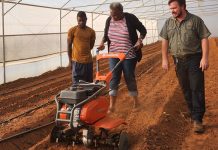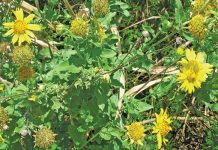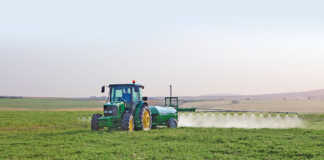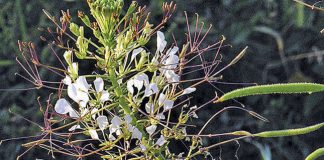Soil mainly consists of sand, silt and clay. Sand and silt are inert components. Think of them as making up the skeleton of the soil. The clay part is made up of tiny hexagonal plates, negatively charged with a relatively large surface area. This means they’re able to hold positively charged nutrients and water.
Bacteria and fungi work on organic material to create humus. This is the ‘glue’ in the soil. It coats the soil particles and holds them together to form aggregates or clumps giving the soil structure, and enabling it to hold the water, air and nutrients that help plants grow. The structure is further improved, or added to, by insect activity and plant root growth.
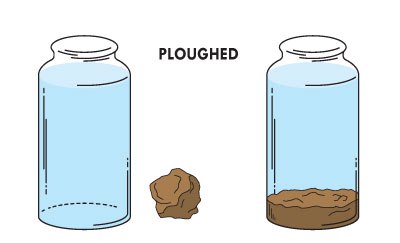
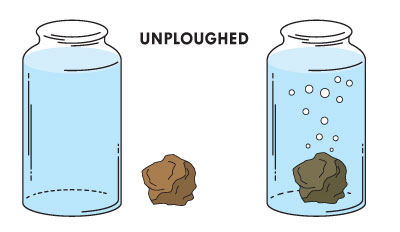
Demonstrating the health of undisturbed soil (right below), as opposed to soil from a frequently ploughed land (right above). The soil from the ploughed land has lost its ability to retain structure.
Ploughing
Soil structure is destroyed by disturbance such as ploughing. It is then more susceptible to erosion – because the ‘glue’ is no longer there to hold it together when the wind blows and the rains come. In addition, the soil can’t hold as much water, air and nutrients as it did before. This can be easily demonstrated. Take a clod of soil from a ploughed land, that has been ploughed for several years, then take another from an area where the soil has never been disturbed.
Place each clod in a jar of water and watch the results. You’re likely to be surprised. A clod of soft, loose unploughed (or undisturbed) soil will be more resilient when placed in the water and will not break apart. Neither is it easy to believe that the hard clod from the ploughed land will simply disintegrate, or fall apart, as soon as it comes into contact with water.
Foundations for Farming (FFF) is a Zimbabwe-based NGO that teaches conservation agriculture practices to farmers, based on Christian principles. FFF provided the information for this article. Visit www.foundationsforfarming.org.

